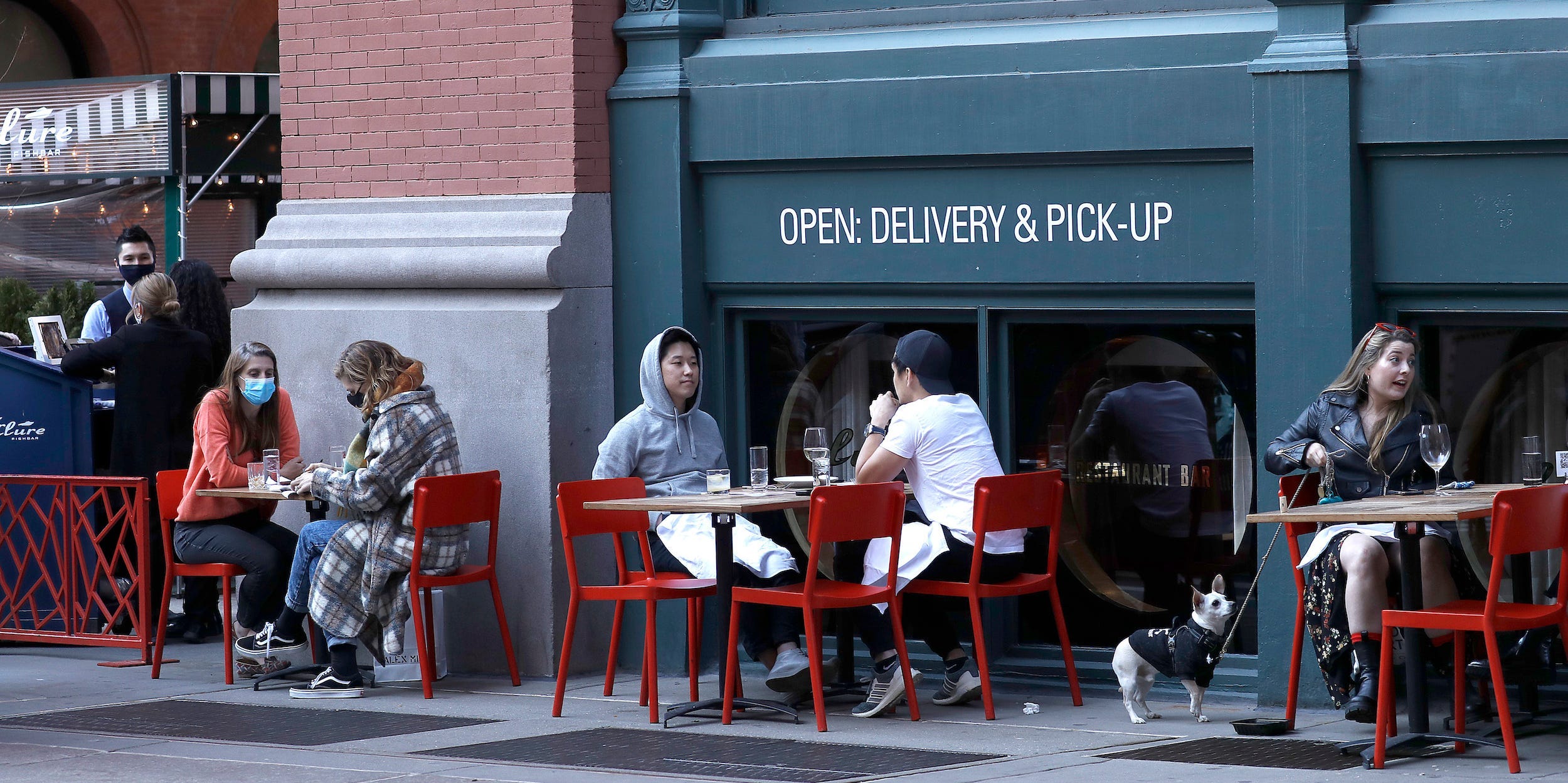
John Lamparski/Getty Images
- Spending in major metro areas will drop by 5% to 10% because of working from home, UChicago researchers said.
- A cutback in commuting will hit urban spending on food, shopping, and entertainment, they added.
- This could lead to tax raises or job cuts in cities that are just recovering from the COVID-19 recession.
- See more stories on Insider's business page.
The post-pandemic economy will look different from the one seen in February 2020. In a word, it will be emptier. Gone are the days of an office-based 9-to-5; instead, workplaces are rolling out plans for hybrid telecommuting and even fully remote work.
But where work-from-home will benefit Americans in reducing commute times and granting extra flexibility, nobody knows just how much it will hit the urban economies that used to support office workers in the before times. University of Chicago researchers have an idea, or at least an estimate.
The post-pandemic shift to work-from-home setups will decrease spending in major metropolitan areas by 5% to 10%, researchers Jose Maria Barrero, Nicholas Bloom, and Steven Davis said in a working paper published on Wednesday. The shortfall could even reach 13% in densely populated areas like Manhattan, the team added, citing their own survey data.
"As these workers cut back on commuting, they will spend less on food, shopping, personal services, and entertainment near workplaces clustered in city centers," the economists said. "Central business districts will see considerably larger spending drops relative to the pre-pandemic levels."
Such a spending drop would present a major challenge for cities looking to recover from the pandemic's economic fallout. Consumer spending counts for roughly 70% of economic activity and is a particularly important economic driver in areas that faced strict lockdowns throughout the health crisis.
Retail sales - a popular gauge of Americans' spending habits - surged to record highs last month as a new wave of stimulus checks and the relaxing of some economic restrictions boosted activity. The measure is expected to climb even higher in April, but as stimulus dries up, Americans' spending will settle into a new normal.
Cities have little to counter a permanent drop in metro-area spending. Where the federal government can spend at a persistent and growing deficit, state and local authorities have to balance their budgets. The drop in spending forecasted by the team of economists could force cities to either lift taxes or cut spending and risk more economic harm.
What is challenging for urban economies could be a benefit to how good people are at their jobs. Widespread telecommuting is projected to lift productivity by 4.8%, according to the study. Half of those gains reflect savings in diminished commuting times.
Still, those likely to benefit from more remote work aren't the ones who need the boost. Employer plans suggest that the extent of telecommuting will rise with education and earnings, the team said. The benefits of persistent work-from-home policies "will be broadly felt but flow mainly to the better educated and highly paid," they added.
With economic data and experts warning of an uneven economic recovery, such disparities would only exacerbate the hiring and income gaps that plagued the country before the COVID-19 recession.
